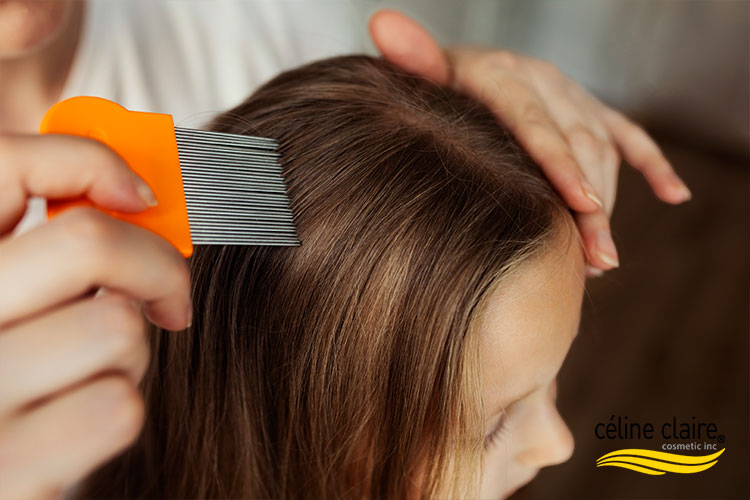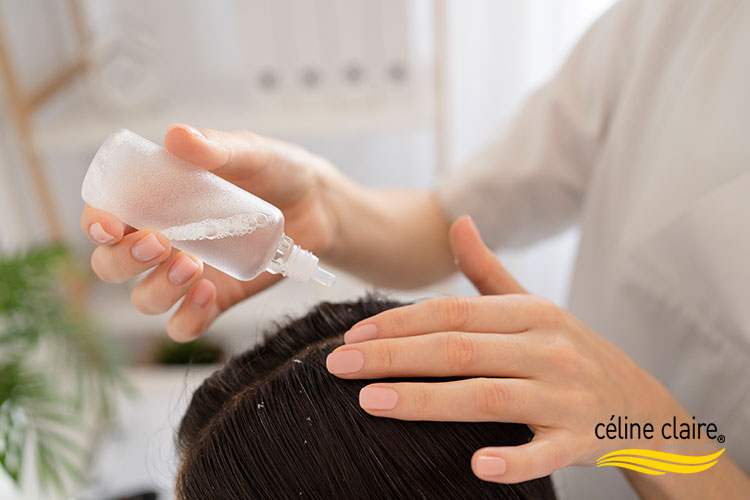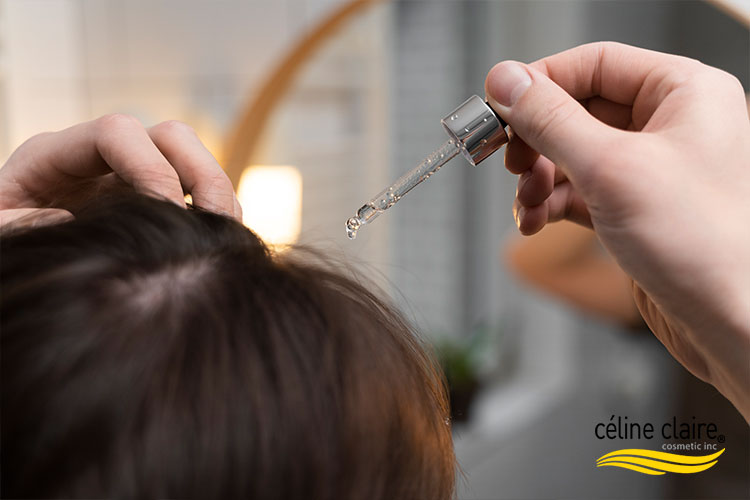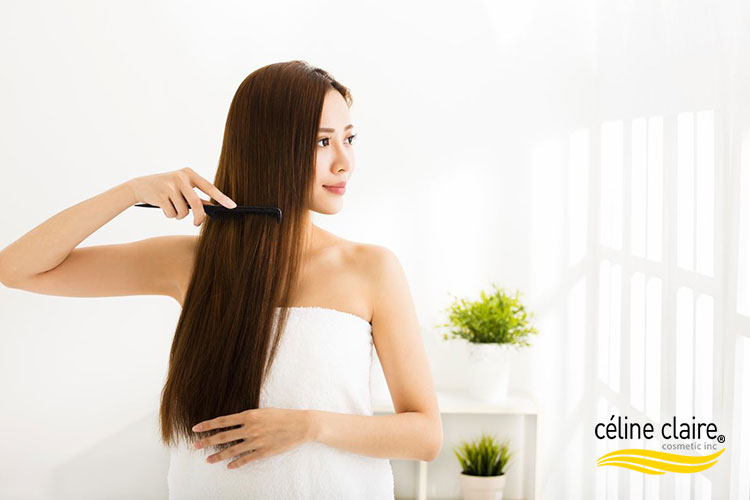
How Do You Dry Scalp Treatment?
A dry scalp may appear to be a little annoyance, but it may have a substantial influence on your hair’s overall appearance. If you’ve ever experienced itching or seen flakes, you know how it may overwhelm the delight of having beautiful hair. The good news is that properly diagnosing and treating a dry scalp may result in healthier, more vibrant hair.
In this article, we’ll look at what causes dry scalp, what hair treatments can help, and how to keep it from happening again. Whether you have a recurring dry scalp or just want to know how to keep your scalp in good health, we’ll give you the information and answers you want.
What is a Dry Scalp?
A healthy scalp supports your hair in the same way as a strong foundation does for the entire building. A dry scalp is similar to a cracked foundation—it indicates that your scalp isn’t as hydrated and nourished as it needs to be.
A dry scalp is indicated by flakiness, itching, and a sense of tightness. A dry scalp is caused by a lack of moisture, as opposed to dandruff, which is frequently caused by an excess of oil and dead skin cells.
When you have a dry scalp, your hair may suffer. Without the proper moisture, your strands might become brittle, resulting in breakage and split ends. Effective hair repair starts with addressing the root cause—your scalp’s condition.
What Factors Cause Dry Scalp?
Environmental Factors
Cold weather and low humidity steal moisture from your scalp. Just as you wouldn’t leave your house without sufficient insulation in the winter, your scalp needs protection from these severe circumstances. A humidifier may function as your scalp’s winter coat, keeping the air moist and your skin healthy and hydrated.
Hair Products
Imagine slathering your face with harsh chemicals and then wondering why it’s itchy. Similarly, shampoos and hair treatments containing sulfates or alcohol can remove your scalp’s natural oils. Choosing soft, moisturizing hair treatments is similar to using a light cleanser on your face—it’s vital for preserving balance and promoting hair repair.
Health Conditions
A dry scalp might indicate underlying health issues such as eczema or psoriasis. It’s like your body is broadcasting an SOS that requires medical treatment. If your dry scalp continues after applying suitable hair treatments, you should see a dermatologist to rule out any underlying causes.
What Are the Ways to Treat Dry Scalp?
Treating a dry scalp requires a multifaceted strategy. Here are some excellent strategies to renew your scalp and make sure your hair gets the moisture it needs:
Hydrating Shampoos & Conditioners
Think of them as your scalp’s daily vitamins. Shampoos and conditioners formulated particularly to hydrate and nourish hair can aid in the restoration of moisture balance. Look for moisture-locking compounds like hyaluronic acid, glycerin, and natural oils (like argan or coconut oil). A hair treatment including these substances, similar to a nourishing balm for dry skin, can be quite effective.
Scalp Masks and Oils
Give your scalp a weekly spa treatment with hydrating masks and oils. These products penetrate deeply, providing enough hydration and nutrition. Coconut oil, olive oil, or specialist scalp masks can serve as a protective barrier, treating dryness and flakiness. Consider these treatments as deep conditioning therapy for your scalp, promoting effective hair repair.
Gentle Massages
Regular scalp massages are not only relaxing, but they also increase blood circulation, which can improve moisture delivery and hair repair. Use your fingertips to gently massage nourishing oil or therapy into your scalp. It’s like giving your scalp a short activity, promoting healthy blood flow and increasing moisture.
Avoiding Heat and Harsh Products
Excessive heat styling and harsh products can worsen dryness. If your hair is used to regular blow-drying or straightening, try lowering the frequency or using lower heat settings. Select styling products free of alcohol and harsh chemicals. Consider taking a break from hard activities to enable your scalp to heal and keep hydrated.
How to Prevent Dry Scalp?
Preventing a dry scalp is akin to maintaining a healthy lifestyle—consistent care and good habits make all the difference. Here are some tips to keep your scalp in optimal condition:
Hydrate from Within
Just as a well-balanced diet promotes general health, drinking enough of water helps your scalp stay hydrated. Aim to drink at least 8 glasses of water every day to keep your body and scalp hydrated. It’s like nourishing your scalp from the inside out, ensuring it gets enough moisture to be healthy.
Use Humidifiers
During dry seasons or in an air-conditioned environment, a humidifier may assist keep moisture levels in the air, which benefits both your skin and scalp. Place a humidifier in your bedroom or living room to maintain a mild, regular level of humidity.
Choose the Right Products
Invest in hair treatments created exclusively for dry scalps. Products with natural, moisturizing components are preferred over those with sulfates or strong smells. It’s similar to choosing the greatest skincare products for your skin: quality is important for getting the best effects.
Maintain a Balanced Diet
A diet high in vital fatty acids, vitamins, and minerals promotes scalp health. Avocados, nuts, and salmon can deliver nutrients that improve moisture levels and general scalp health. Consider your food to be a significant component in your hair repairprocess, providing your body with the necessary nutrients.
When Should You See a Doctor for a Dry Scalp?
While dry scalp can often be managed with home remedies and hair treatments, there are times when professional advice is necessary. Here’s when you should seek medical attention:
Persistent or Severe Symptoms
If your dry scalp is accompanied by severe itching, redness, swelling, or discomfort that does not respond to over-the-counter therapies, see a dermatologist. Persistent symptoms may signal an underlying illness that needs expert care.
Visible Skin Changes
If you detect unexpected changes in your scalp, such as significant flaking, sores, or hair loss, get expert help. These symptoms might indicate illnesses such as psoriasis or dermatitis, which require tailored hair repair therapies.
Introducing Products That Improve Dry Scalp
When choosing products to address dry scalp, consider options that are specifically formulated to hydrate and restore balance. For instance:
Celine Claire Hydrating Scalp Treatment
This product offers deep hydration with a blend of natural oils and soothing ingredients, ideal for combating dryness and enhancing hair repair.
Arbonne RE9 Advanced Scalp Revitalizer
Enriched with botanical extracts and essential oils, this revitalizer helps nourish the scalp and maintain moisture balance.
Conclusion
Understanding the reasons of a dry scalp, using efficient hair treatments, and taking preventive steps are all part of the solution. You may obtain a healthier scalp and more bright hair by using the correct products, practicing healthy habits, and getting expert aid when necessary.
If you’ve experienced the discomfort of a dry scalp or found a treatment that works for you, please share your thoughts in the comments below. Remember that good hair begins with a well-cared-for scalp, and with the appropriate attitude, you can keep both in excellent condition.
FAQ
Can dry scalp cause hair loss?
While a dry scalp itself doesn’t directly cause hair loss, it can lead to scalp irritation and inflammation, which may affect hair growth.
What is the best type of shampoo for a dry scalp?
Look for shampoos with moisturizing ingredients like glycerin, hyaluronic acid, and natural oils. Avoid sulfates and alcohol-based products.
Can I use coconut oil for a dry scalp?
Yes, coconut oil is excellent for moisturizing and nourishing a dry scalp. It can be applied directly or as part of a scalp treatment.
How often should I use a scalp mask?
For best results, use a hydrating scalp mask once a week to replenish moisture and soothe dryness.
Are there any dietary changes that can help with dry scalp?
Incorporating foods rich in omega-3 fatty acids, such as fish and flaxseeds, can help improve scalp hydration.
Can dry scalp be a sign of a more serious condition?
Persistent or severe dryness, especially if accompanied by other symptoms, may indicate conditions like eczema or psoriasis, requiring medical attention.
Is it necessary to use a conditioner with every shampoo?
Yes, using a conditioner helps to lock in moisture and prevent dryness, complementing the effects of your shampoo.
How can I protect my scalp from harsh weather?
Wearing a hat or scarf in cold weather and using a humidifier indoors can help protect your scalp from extreme conditions.
Can stress contribute to a dry scalp?
Yes, stress can affect your overall health and contribute to scalp issues. Managing stress through relaxation techniques can benefit your scalp and hair health.
When should I seek professional help for a dry scalp?
If you experience severe symptoms, persistent irritation, or noticeable changes in your scalp, consult a dermatologist for a thorough evaluation.





